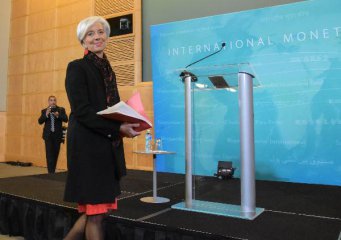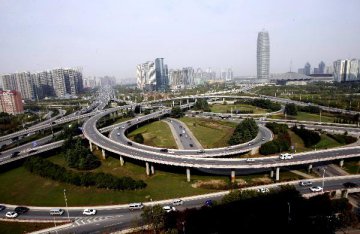
The economic slowdown and volatility across the stock and currency markets have fanned concerns about the world's second largest economy, with some even predicting a "hard landing." While such a conclusion is a result of a misreading or exaggeration of the challenges facing the Chinese economy, it also underestimates the ability of Chinese policymakers. It has been agreed that the investment-led model of growth has reached its limits.
A multitude of problems, including high debt levels, industrial overcapacity and environmental degradation, make it imperative that the economy is guided onto a more sustainable path. The economic slowdown is one of the side effects of the painful and protracted transition toward a model that draws strength from consumption, services and innovation.
What is more, 6.9-percent annual growth is an enviable rate for any country, not least given the magnitude of the Chinese economy which contributed about one fourth to global economic growth and added an equivalent of the whole Swedish economy in 2015.
Concerning the problems, debt levels are fully under control and much lower than those of most developed economies, and supply-side structural reform will be a natural recipe for overcapacity. For the once turbulent stock market, the storm has abated and more signs of stabilizing are emerging after risks have, to a large extent, been tempered. The currency market fared well recently as speculative forces betting against it are losing steam and there was no basis for persistent renminbi depreciation in the first place.
Contrary to the doomsayers, the Chinese economy is making headway in transforming itself to a more sustainable growth model. As old growth drivers slow, new ones have risen to take up the slack. In 2015, consumption contributed 66.4 percent to the GDP in 2015, up 15.4 percentage points from 2014. From another angle, the service sector contributed 50.5 percent to the economy in 2015, up from 48.1 percent in 2014. It is the first time the sector has exceeded 50 percent.
When people say "the fundamentals of China's economy remain strong," it is not just lip service. China's high saving rate can be translated into investment and the government still has monetary policy space and tools to address potential downside risks. Even after several months of declines, the country still holds 3.23 trillion U.S. dollars in foreign exchange reserves, a powerful arsenal in hand to fend off any systemic risks.
After all, China has proved its ability to implement key reforms and shown a solid track record of intervening at the right time to stop substantial risks from escalating out of control, and that's maybe why a hard landing or collapse scenario as prophesied by many will never come.
























Latest comments